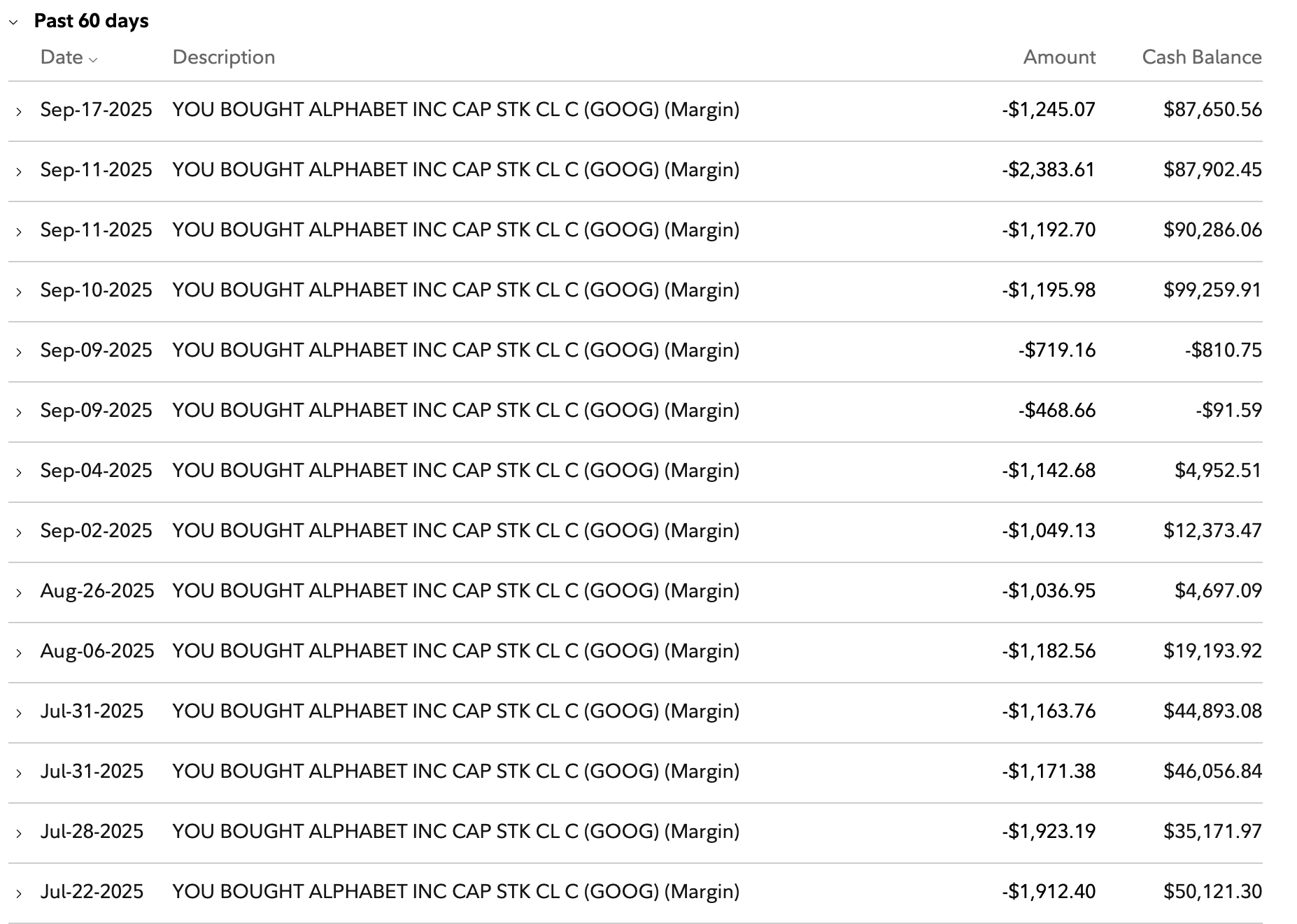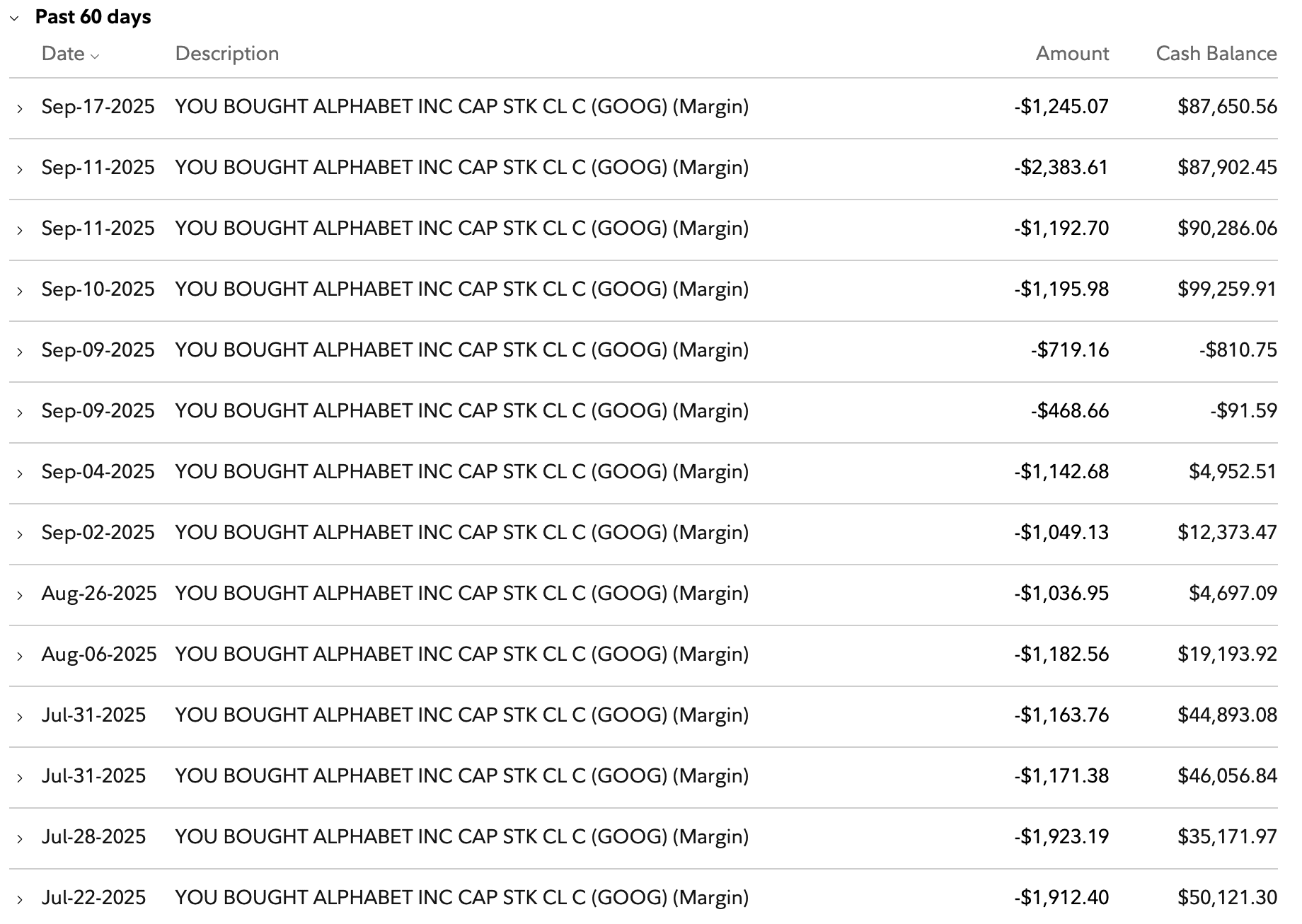Two decades ago, I learned an important lesson: if you can’t beat them, join them. And if you can’t find a job with the monopolies, then you might as well invest in them!
Take what happened on September 1, 2025. I got an email from Apple saying my Apple TV+ monthly subscription was going up from $9.99 to $12.99. My first reaction was annoyance. Who wants to pay an extra $3 a month for the same shows? Everything should be free, like my weekly newsletter helping readers achieve financial freedom sooner!
But as a shareholder, I was pumped. A 30% price hike is massive for profitability given Apple’s millions of subscribers. Then there’s the price hikes of its latest laptops. This is the type of pricing power you only get when you’ve built a monopoly-like ecosystem.
The only logical thing I could think of after that email? Buy more Apple stock.
For reference, a monopoly is a market structure where a single company or entity dominates the supply of a particular product or service, giving it significant power to set prices, control distribution, and limit competition. Because barriers to entry are high—such as patents, exclusive resources, government regulation, or sheer economies of scale—the monopolist can maintain outsized profits and pricing flexibility over time.
Cash Hoards And Large Ecosystems
Traditionally, Apple’s stock sells off after its annual event where it unveils new products. The hype never quite matches Wall Street’s lofty expectations, and 2025’s showcase was no different. But I’ve come to realize something: Apple doesn’t need to innovate in the way we think—by launching world-changing gadgets every year. Just moving the camera lens 1 millimeter is good enough.
The real “innovation” is Apple’s ability to lock in customers and charge a toll. The App Store’s 30% commission is the perfect example. If you’re a developer and you want your app to succeed, you have no choice but to be inside Apple’s ecosystem. And Apple knows this. The iPhone, Mac, iPad, AirPods, Watch—all of these hardware products feed into one sticky universe of recurring revenue. Once you’re in, you don’t leave.
That’s why Apple is only going to continue dominating. As an investor, betting against Apple is betting against super-normal profits.

Google’s Monopoly Looks Good Too
Then there’s Google, another monopoly-like juggernaut. Google pays Apple $20+ billion a year just to be the default search engine in Safari. Imagine that. How can any other search engine compete when Google buys the pole position on the world’s most valuable and popular devices?
Google still commands roughly 90% of the global search market, and that dominance remains unshaken despite the rise of AI LLMs. To my dismay, Google now lifts publisher content and displays it in its AI Overviews, making it even harder for publishers to capture valuable search traffic.
In September 2025, Google was spared the worst possible judgment in its landmark antitrust case. Judge Amit Mehta ruled that while Google cannot enter into exclusive agreements with companies, it is still allowed to pay partners like Apple to distribute its services. Translation: Google can keep sending tens of billions to Apple, and Apple can keep cashing the checks.
That is a win-win for both companies—and their shareholders. It might even be a win for Judge Mehta and his family.

How Many Firms Can Compete at This Level?
Only a tiny handful of firms in the world have the financial firepower to play at this level.
The only company that could theoretically compete is Microsoft, with Bing, which nobody cares about. If Microsoft ever decides to go bananas and bid against Google, we might see Apple’s annual payout rise into the $30–$40 billion range. That’s more than the annual GDP of some small countries.
From an investor’s standpoint, you root for these bidding wars. As long as Apple remains the gatekeeper of the world’s most coveted user base, it’s going to get paid.
And as history has shown, regulators and courts rarely break apart such entrenched dominance. When you have enough scale, money, and influence, you can bend politics and policy in your favor.
Strategically, Google should spend more on politicians, instead of the $20 – $30 million a year on lobbying, to protect its monopoly and gain even further ground.
The Winners Keep On Winning
This dynamic isn’t limited to corporations. It’s the same in personal finance.
Think about the wealthy individual in 2010 who had $10 million in investable assets. If that person simply plowed it all into the S&P 500 and reinvested dividends, they’d have around $57 million today, assuming the S&P 500 closes up 10% in 2025. They’ve become a semi-human monopoly—able to buy influence, provide multi-generational wealth, and secure advantages most people can only dream of.
Now contrast that with someone who bought too much home in 2006, got foreclosed on in 2010, and declared bankruptcy. Instead of compounding millions, they ended up with negative net worth and a credit rating in tatters for seven years. They’re like the small competitor trying to claw market share from Apple or Google. The gap only widens with time. The main strategy is to one day sell to Apple or Google, not compete with it.
Just like companies, individuals who already have the resources tend to keep pulling further ahead. The snowball effect is real.
Human Monopolies and Duopolies
This is why I believe investors should focus more of their attention on monopoly-like and oligopoly-like companies. If the government isn’t going to stop them—and history suggests it rarely does—you might as well benefit.
OpenAI and Anthropic, for example, are the two emerging giants in AI large language models. While both are private for now, their oligopoly structure is already forming, along with Llama and Gemini.
In consumer products, Coca-Cola and Pepsi dominate global soft drinks in a classic duopoly. If you believe the world will keep guzzling sugary beverages despite the health risks, these stocks make sense.
In payments, Visa and Mastercard form another entrenched oligopoly. If you think consumers will keep spending beyond their means and paying double-digit interest rates on revolving credit, owning these companies is a rational choice.
The pattern is clear: these entrenched players are allowed to grow bigger and more profitable while regulators look the other way. Politicians often own shares in the very monopolies they’re supposed to regulate.
So why shouldn’t you?
Adapt or Perish
Of course, disruption is always possible. OpenAI and Anthropic have already taken bites out of Google’s search business as more people rely on AI-generated answers. This is another reason why I’ve decided to invest in both OpenAI and Anthropic as a hedge.
But disruption doesn’t eliminate the monopoly dynamic—it just shifts it. Today’s upstart is tomorrow’s entrenched winner. For now, Apple, Google, Microsoft, Coca-Cola, Pepsi, Visa, and Mastercard are still firmly in control.
Companies adapt. Investors must as well. The alternative is irrelevance.
My Investing Philosophy Going Forward
For the average person, investing in a low-cost S&P 500 ETF remains the simplest and most effective wealth-building strategy. But if you’re reading Financial Samurai, you likely care about money more than most. As a result, you’re willing to think strategically about how to tilt the odds in your favor.
That’s why I like building concentrated exposure to select monopolies and oligopolies within your portfolio. These are the companies that will likely generate the most consistent profits, wield the most pricing power, and deliver the strongest returns over time. When these companies inevitably correct, I will buy more.
Yes, complain about injustice if you want. Yes, worry about inequality. But at the end of the day, if it’s legal and profitable, the rational investor joins the winning side. Because if you can’t beat them, you might as well invest in them.
That’s not cynicism. That’s survival.
Readers, are you investing in monopolies and oligopolies as part of your strategy? Or maybe backing startups that could one day get acquired by them? I’d love to hear your perspective—why do you think the government and courts aren’t more proactive in breaking up these giants for the sake of consumers?
Subscribe To Financial Samurai
Pick up a copy of my USA TODAY national bestseller, Millionaire Milestones: Simple Steps to Seven Figures. I’ve distilled over 30 years of financial experience to help you build more wealth than 94% of the population—and break free sooner.
Listen and subscribe to The Financial Samurai podcast on Apple or Spotify. I interview experts in their respective fields and discuss some of the most interesting topics on this site. Your shares, ratings, and reviews are appreciated.
To expedite your journey to financial freedom, join over 60,000 others and subscribe to the free Financial Samurai newsletter. You can also get my posts in your e-mail inbox as soon as they come out by signing up here. Financial Samurai is among the largest independently-owned personal finance websites, established in 2009. Everything is written based on firsthand experience and expertise.
